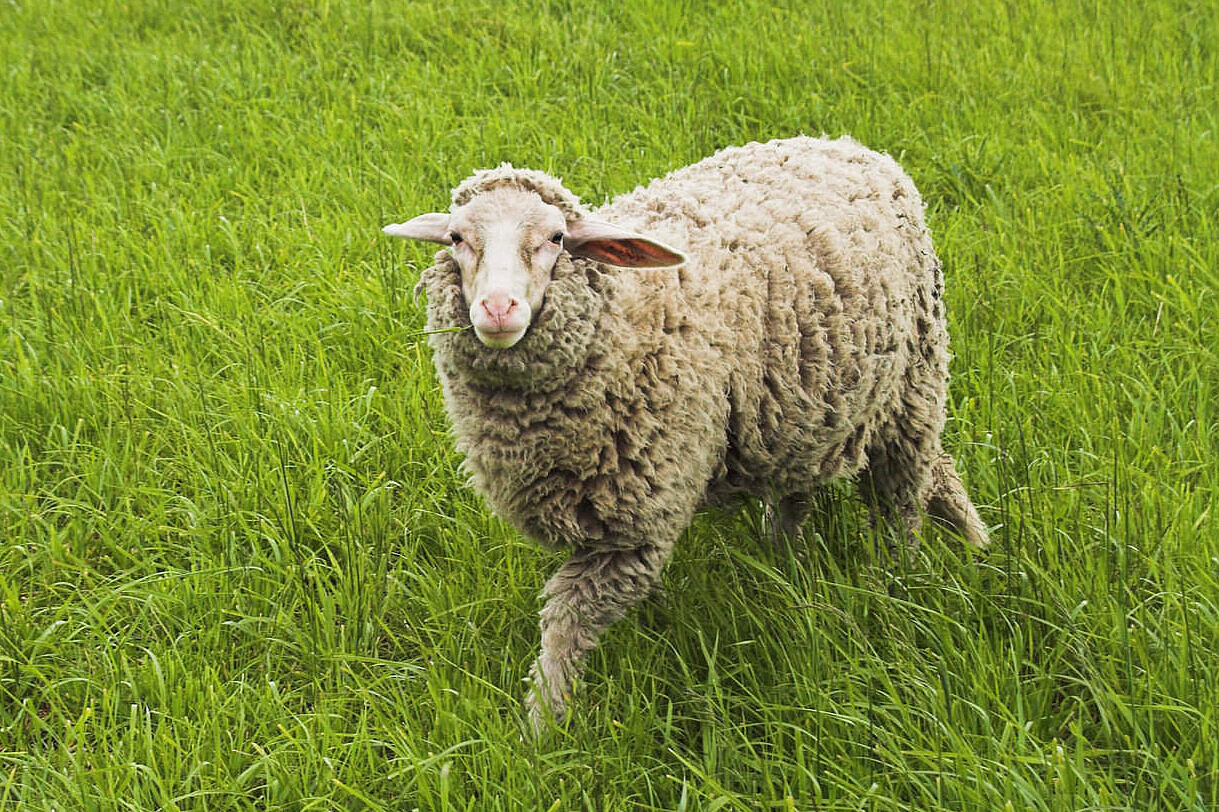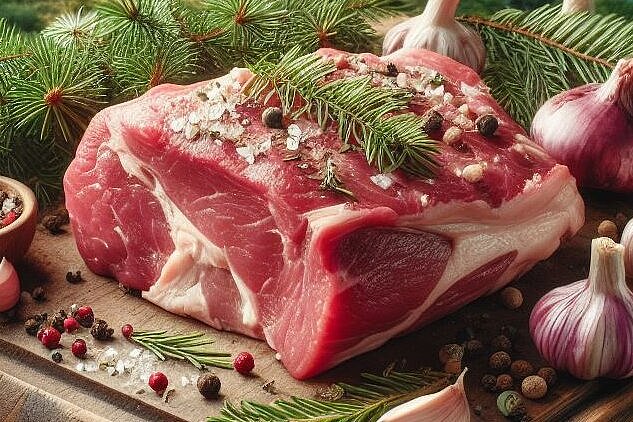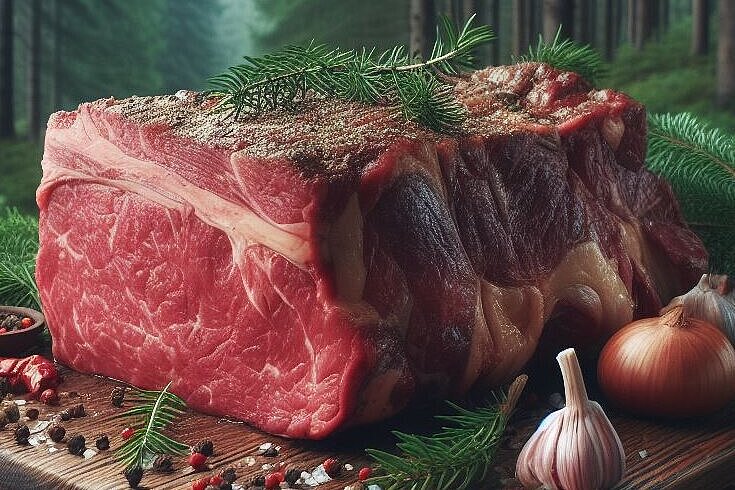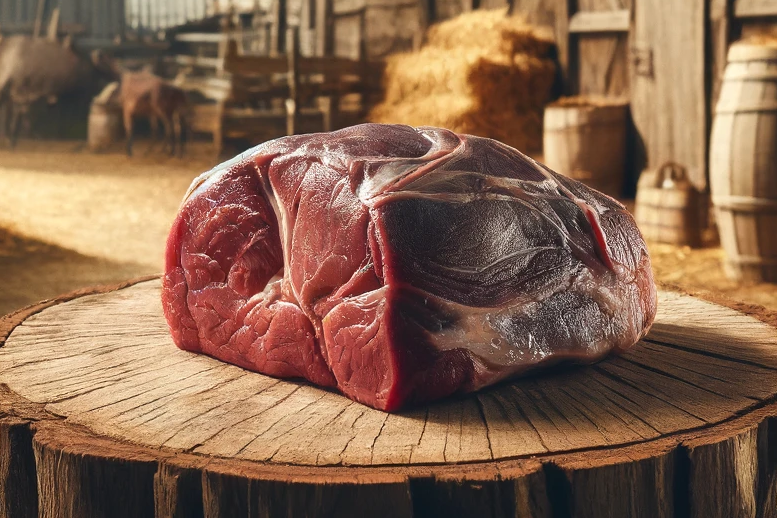Lamb

What is lamb meat?
Lamb is the meat of young sheep that are less than one year old. It is tender, juicy and has a mild flavor. Lamb meat contains a lot of protein, iron, zinc and vitamin B12, which are important for your dog's health and well-being. Lamb is also a good source of omega-3 fatty acids, which have an anti-inflammatory effect and care for your dog's skin and coat.
What are the benefits of lamb for dogs?
Lamb meat can have many benefits for dogs, especially if they are sensitive to other types of meat. Lamb is hypoallergenic, which means that it rarely triggers allergies or intolerances. This is because lamb is fed less frequently than beef or chicken and therefore there are fewer antibodies in your dog's body that could trigger an allergic reaction.
Lamb can also help to boost your dog's immune system as it contains lots of antioxidants that fight free radicals. Free radicals are harmful molecules caused by pollution, stress or ageing that can cause cell damage. Antioxidants protect cells from this damage and promote your dog's health.
Lamb can also improve your dog's digestion as it is easily digestible and has a high proportion of connective tissue. Connective tissue is rich in collagen, a protein that strengthens and repairs the intestinal wall. Collagen can also prevent or alleviate joint problems by maintaining cartilage mass and reducing inflammation.
What are the disadvantages of lamb for dogs?
Lamb also has some disadvantages that you should consider before feeding it to your dog. For one, lamb is relatively high in fat, which can lead to obesity or pancreatitis if your dog eats too much of it. You should therefore make sure that you only give your dog lean lamb and remove the fat.
Secondly, lamb meat can be contaminated with parasites or bacteria that can harm your dog. This is especially true of raw lamb, which you should only feed if you are sure that it is fresh and hygienic. You should also make sure that you don't give your dog any bones, as these can splinter and cause injuries to the mouth or digestive tract.
How do you feed lamb to dogs?
If you want to feed your dog lamb, you should follow some tips to provide him with a healthy and balanced diet. Here are some of them:
- Introduce lamb slowly into your dog's diet to avoid potential digestive problems. Start with small amounts and gradually increase them.
- Mix lamb with other types of meat or plant-based ingredients to ensure a varied diet. For example, you can combine lamb with rice, vegetables or fruit.
- Pay attention to the quality and origin of the lamb you buy. If possible, choose organic lamb from species-appropriate farming that is free from hormones, antibiotics or pesticides.
- Boil or steam the lamb to preserve the nutrients and kill any germs. Avoid frying or grilling the lamb, as this can lead to the formation of carcinogenic substances.
- Consider your dog's individual needs, such as their age, weight, activity level or health conditions. Adjust the amount and frequency of feeding accordingly and consult your vet if necessary.
Lamb is a tasty and nutritious food for dogs that offers many benefits for their health and well-being. It is hypoallergenic, immune-boosting, digestive and easy on the joints. However, you should also be aware of the disadvantages of lamb, such as its high fat content and potential germ contamination. You should therefore only feed your dog lean, high-quality lamb and mix it with other ingredients. You should also consider your dog's individual needs and not overfeed it. If you follow these tips, you can provide your dog with a healthy and balanced lamb diet.
Properties 16
Are you looking for other ingredients with a specific property?
Just click on them to find more.
If you notice any signs of hypersensitivity or poisoning in your dog, you should see your vet immediately. We are not a substitute for a vet, but we try to be as accurate as possible. Every dog reacts differently and we recommend you get a second opinion or consult your vet if in doubt.
Stay healthy and take good care of your four-legged friend!😊
Similar to Lamb
Sheep meat is meat from sheep that are older than two years. If the animals are younger, it is called lamb meat. Both types of meat come from the same animal, but differ in their composition and...
Goat meat has several benefits for dogs that you should be aware of. Firstly, it is a good source of high-quality protein, which is important for muscle building, immune defense and wound healing....
Beef is the meat of various breeds of domestic cattle (Bos taurus) that are bred for meat production. There are many different cuts of beef that are suitable as dog food. These include Muscle meat:...
Horsemeat is the meat of horses that are slaughtered for human or animal consumption. Horsemeat is considered a delicacy in some countries, in others it is frowned upon or even forbidden. In...



